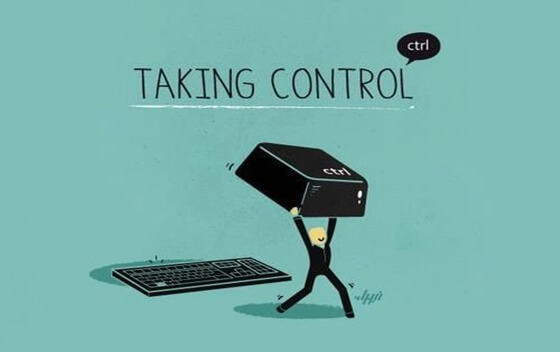Four Keys to Help You Train Your Focus


Written and verified by the psychologist Gema Sánchez Cuevas
According to Daniel Goleman, you need to train your focus to start identifying what goes on inside and outside your head. In a demanding world, full of stimuli and pressures, Goleman believes you may be neglecting that internal universe comprised of your feelings, fears, and needs. Likewise, maybe you’re also forgetting to pay attention to the important things around you.
Focalize, to connect, to discern, to focus on… You’re always using these processes in your life. Think about it. Stress, anxiety, or depression can numb your mind. When your brain is on high alert, paying attention to thousands of stimuli, thoughts, feelings, emotions, and worries, the world can seem chaotic. There’s no productivity in that kind of environment. It’s like a house with no doors, nor windows. You can’t be happy if you’re feeling trapped.
Daniel Goleman wrote Focus in 2013. In it, he tries to teach you how to train your focus to break free from suffering and chaos. In a world with too many distractions, you’re made to refocus your mind, to stay still, and take what really matters into account.
Four Keys to Train Your Focus According to Daniel Goleman
To train your focus, Goleman says you need to identify a very important thing. Focus, just as with any other basic psychological process, is a muscle. If you don’t use it, you lose it.
If you’re persistent and willing, you’ll start to feel better. They key is to be aware of that need.
Nowadays, gadgets can do many things. Our smartphones and computers are replacing processes we used to do by ourselves. Mentally, that is. That’s why you’re so focused on those gadgets, instead of paying attention to your inner and outer social context.
Little by little, all this information, distractions, pressures, and data, can make you feel exhausted. This is known as cognitive overstimulation. It’s similar to what happens when you work out excessively when you’re really tired and can’t go on.
Thus, being tired makes you vulnerable to plenty of adverse scenarios such as stress or anxiety. Let’s talk about the strategies that can help you train your focus.
Take Control of Your Mind
William James, a distinguished author in modern Psychology, defined attention as:
“…is taking possession of the mind, in clear and vivid form, of one out of what seems several simultaneously possible objects or trains of thought. Focalization, concentration of consciousness are of its essence.”
- Attention is a powerful tool. It’s setting your focus on a clear goal. Also, to take that possession, you need to control your emotions and be calm.
- Understanding what attention is will make it easier for you to get it.

Recipe for Self-Control
Training your focus means practicing self-control. You’re surrounded by many stimuli, ideas, thoughts, and feelings that your mind can lose focus and become erratic.
Doctor Heather A. Wadlinger, from the University of Pennsylvania, has performed studies that revealed that attention is related to emotions. This means that taking care of the former will improve the latter. But how can you do this?
According to Goleman, to train your focus you need to practice mindfulness. In his book The Art of Meditation: Four Classic Meditative Techniques Adapted for Modern Life, he teaches you how to meditate.
Internal and External Connections
If you aren’t aware of your internal reality, sooner or later you’ll end up losing yourself. Those who aren’t in touch with who they are and how valuable their surroundings are, lose their quality of life and happiness.
- Listen to your heart. Start dealing today with whatever hurts or troubles you.
- Likewise, be aware of yourself at every moment. Notice what you need, what you deserve, and what’s happening inside yourself.
- Practice empathy. To Goleman, connecting with others is key. Empathy can help you discover what’s important to you and the people you care about.

Are You Doing What You Love?
This is one of the questions that Daniel Goleman asks in his book Focus. Most of the time, you can feel bored or stressed out. The simple fact of not having a purpose in life can make your attention dwindle. If you aren’t motivated, you’ll lose that spark that pushes you to be more creative.
Sometimes, you need to give in and stop trying to impose your preferences. Not everybody has the luck to do what they love or to have an interesting life. You need to find a balance. You need to find a purpose in life, activities you’re passionate about, and people that bring joy and energy to your life.
Purpose nurtures attention. Likewise, a favorable emotional state can help you better understand what’s interesting to you. These little things are, without a doubt, what you need to reflect on to improve your quality of life. Do it. Train your focus, don’t lose what makes you happy, and find whatever motivates you to be who you really are and be happy with what you have.
All cited sources were thoroughly reviewed by our team to ensure their quality, reliability, currency, and validity. The bibliography of this article was considered reliable and of academic or scientific accuracy.
- Goleman, Daniel (2013) Focus: desarrollar la atención para alcanzar la excelencia. Kairós
This text is provided for informational purposes only and does not replace consultation with a professional. If in doubt, consult your specialist.








